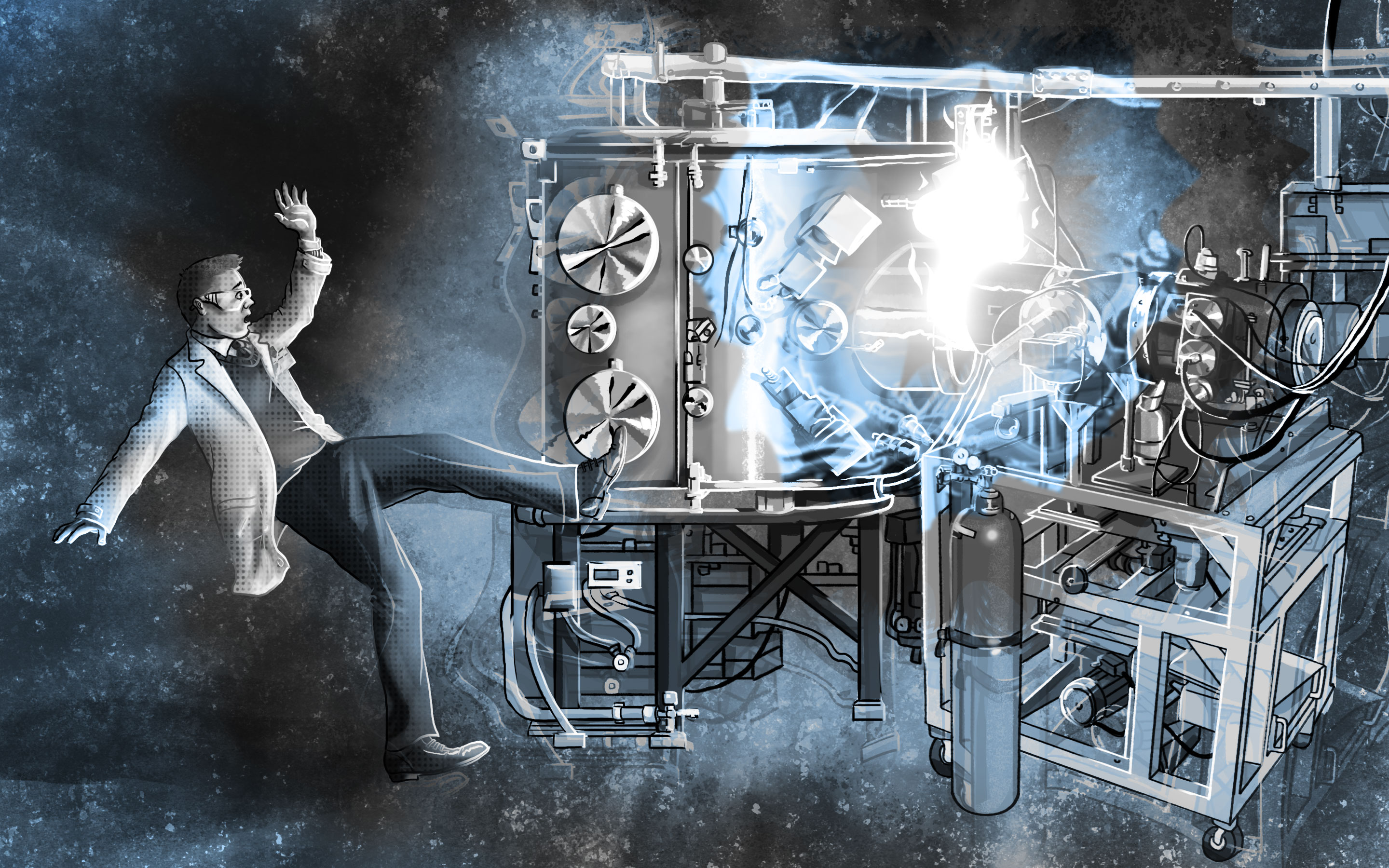Understanding The Landscape Of Ongoing Nuclear Litigation

Table of Contents
Types of Nuclear Litigation
Nuclear litigation encompasses a broad range of legal disputes stemming from various aspects of the nuclear fuel cycle. Understanding these different types is crucial for navigating this complex legal landscape.
Reactor Accidents and Liability
Cases related to reactor accidents, such as Chernobyl and Fukushima, represent a significant portion of nuclear litigation. These accidents result in extensive legal battles revolving around compensation for victims, costs associated with cleanup and remediation efforts, and the long-term health effects on exposed populations.
- Examples of major cases: The ongoing litigation surrounding the Fukushima Daiichi nuclear disaster involves numerous lawsuits against the Tokyo Electric Power Company (TEPCO) and the Japanese government, focusing on issues of negligence and compensation for displaced residents and businesses. Similarly, the Chernobyl disaster spurred extensive litigation involving victims, cleanup crews, and neighboring countries affected by the radioactive fallout.
- International legal frameworks: International conventions, like the Vienna Convention on Civil Liability for Nuclear Damage, play a crucial role in establishing liability frameworks and determining compensation schemes for transboundary nuclear accidents. However, these frameworks often face challenges in practical application due to jurisdictional complexities and variations in national laws.
- Challenges in establishing liability: Proving causation between radiation exposure and specific health problems presents a major challenge in reactor accident litigation. The long latency periods associated with radiation-induced illnesses further complicate the process of establishing liability. Keywords: Nuclear accident litigation, reactor accident claims, compensation for radiation exposure.
Nuclear Waste Disposal
The storage and disposal of nuclear waste present another major source of ongoing nuclear litigation. Legal challenges frequently arise concerning the selection of disposal sites, environmental impact assessments, and the long-term liability associated with the continued management of this hazardous material.
- Examples of ongoing legal battles: Numerous communities across the globe have actively opposed the siting of nuclear waste repositories, leading to protracted legal battles over environmental permits and regulatory approvals. These battles often involve complex scientific debates over the long-term safety of proposed disposal methods and the potential for groundwater contamination.
- Regulatory hurdles: Strict regulatory frameworks govern the disposal of nuclear waste, creating significant hurdles for both the disposal process and the related legal challenges. These regulations address issues like transportation, handling, security, and monitoring of disposal sites.
- Public opposition: Public concerns about the long-term safety and environmental impact of nuclear waste disposal frequently fuel litigation, involving claims of inadequate public participation in regulatory decision-making processes. Keywords: Nuclear waste disposal litigation, radioactive waste lawsuits, environmental law and nuclear waste.
Nuclear Plant Decommissioning
The decommissioning of nuclear power plants presents a unique set of legal challenges, including issues related to financial responsibility for the dismantling process, environmental remediation, and worker safety. These processes are complex, costly, and require specialized expertise, which contributes to the frequent emergence of related legal disputes.
- Examples of decommissioning projects facing legal challenges: Several decommissioning projects have faced delays and cost overruns, leading to legal battles between plant operators, regulatory agencies, and funding bodies. Disputes over liability for unforeseen costs and environmental remediation obligations are frequently contested.
- Regulatory compliance: Strict regulatory requirements must be met throughout the decommissioning process, which can trigger significant legal challenges if not correctly addressed. These regulations ensure worker safety, environmental protection, and the proper handling of radioactive materials.
- Cost recovery mechanisms: The high cost of decommissioning nuclear power plants raises significant questions about cost recovery mechanisms and the potential for disputes over the allocation of financial responsibility among plant owners, insurers, and government agencies. Keywords: Nuclear plant decommissioning litigation, site remediation lawsuits, nuclear power plant dismantling.
Key Players in Nuclear Litigation
A variety of stakeholders are actively involved in nuclear litigation, each with distinct interests and legal strategies.
Government Agencies and Regulators
Government agencies and regulatory bodies play a central role in shaping the landscape of nuclear litigation. They conduct investigations into incidents, enforce regulations, and set legal precedents through their actions and decisions.
- Examples of key regulatory agencies: The Nuclear Regulatory Commission (NRC) in the United States, the Office for Nuclear Regulation (ONR) in the United Kingdom, and equivalent bodies in other countries play a critical role in overseeing nuclear facilities and addressing legal challenges.
- Powers and limitations: Regulatory agencies possess substantial authority to enforce regulations, issue fines, and even shut down facilities that fail to meet safety standards. However, their authority is often subject to legal and political constraints.
- Influence on legal outcomes: The decisions and actions of regulatory agencies frequently influence the outcome of nuclear litigation, providing important context and evidence for legal arguments. Keywords: Nuclear regulatory agencies, government litigation, environmental protection agencies.
Energy Companies and Utilities
Energy companies and utilities involved in the nuclear industry are frequent participants in nuclear litigation. Their legal strategies often focus on minimizing liability, demonstrating compliance with regulations, and managing risks.
- Examples of major energy companies involved in nuclear litigation: Many large energy companies globally operate nuclear power plants and are thus implicated in legal disputes concerning safety, environmental issues, and waste management.
- Legal defenses: Energy companies often employ various legal defenses in nuclear litigation, including arguments of force majeure, compliance with industry standards, and claims of unforeseeable events.
- Financial implications: The financial implications of nuclear litigation can be substantial for energy companies, potentially affecting insurance premiums, operational costs, and overall financial stability. Keywords: Nuclear energy companies, utility litigation, corporate liability.
Individuals and Affected Communities
Individuals and communities affected by nuclear incidents or waste disposal have legal avenues to pursue compensation and redress. This often involves class-action lawsuits and individual claims for damages.
- Examples of successful lawsuits by individuals and communities: Several instances of successful lawsuits demonstrate that individuals and communities can successfully pursue legal action against nuclear operators for damages resulting from negligence, environmental contamination, or health problems.
- Challenges in proving causation: Establishing a direct link between nuclear activities and specific health problems or environmental damages is often a significant challenge in these lawsuits.
- The role of public interest groups: Public interest groups often play a key role in supporting individuals and communities in pursuing legal action, providing resources and expertise to navigate complex legal proceedings. Keywords: Individual claims for nuclear damages, class-action lawsuits, public interest litigation.
Emerging Trends in Nuclear Litigation
The field of nuclear litigation is constantly evolving, influenced by various factors.
- Climate change and nuclear litigation: The increasing urgency of addressing climate change is impacting the nuclear energy sector, leading to renewed interest in nuclear power as a low-carbon energy source. This, however, also results in new legal challenges relating to the expansion of nuclear infrastructure and associated environmental concerns.
- International nuclear law: The increasing interconnectedness of the global nuclear industry is leading to a greater role for international law in resolving cross-border nuclear disputes. This involves harmonizing national laws and establishing international mechanisms for dispute resolution.
- Technology and nuclear law: Technological advancements in areas like nuclear waste treatment, reactor design, and monitoring technologies are creating new legal challenges and opportunities in this domain. This includes questions of liability for new technologies, and the regulation of advanced nuclear reactors. Keywords: Climate change and nuclear litigation, international nuclear law, technology and nuclear law.
Conclusion
The landscape of ongoing nuclear litigation is complex and constantly evolving. Understanding the various types of cases, the key players involved, and emerging trends is crucial for anyone involved in or affected by the nuclear industry. From reactor accidents and waste disposal to decommissioning challenges, navigating the legal complexities requires careful consideration and expert advice. This article provides a foundation for comprehending the intricacies of nuclear litigation, but seeking legal counsel is vital when facing specific challenges in this specialized field. Further research into specific cases and relevant legislation will provide a more comprehensive understanding of the evolving dynamics of nuclear litigation. Don't hesitate to consult with experts in nuclear law to address your concerns and navigate the complexities of this important area.

Featured Posts
-
 Amy Irvings Emotional Tribute Following The Death Of Dallas And Carrie Star
May 01, 2025
Amy Irvings Emotional Tribute Following The Death Of Dallas And Carrie Star
May 01, 2025 -
 Eurovision 2025 Getting To Know Remember Monday The Uks Representatives
May 01, 2025
Eurovision 2025 Getting To Know Remember Monday The Uks Representatives
May 01, 2025 -
 Gelecegin Doktorlari Eskisehir De Stresle Nasil Bas Ediyor Boksun Etkisi
May 01, 2025
Gelecegin Doktorlari Eskisehir De Stresle Nasil Bas Ediyor Boksun Etkisi
May 01, 2025 -
 Than Trong Khi Gop Von Nhan Dien Va Tranh Rui Ro Voi Cong Ty Co Tien An Lua Dao
May 01, 2025
Than Trong Khi Gop Von Nhan Dien Va Tranh Rui Ro Voi Cong Ty Co Tien An Lua Dao
May 01, 2025 -
 Ripple Lawsuit Sec May Classify Xrp As A Commodity
May 01, 2025
Ripple Lawsuit Sec May Classify Xrp As A Commodity
May 01, 2025
